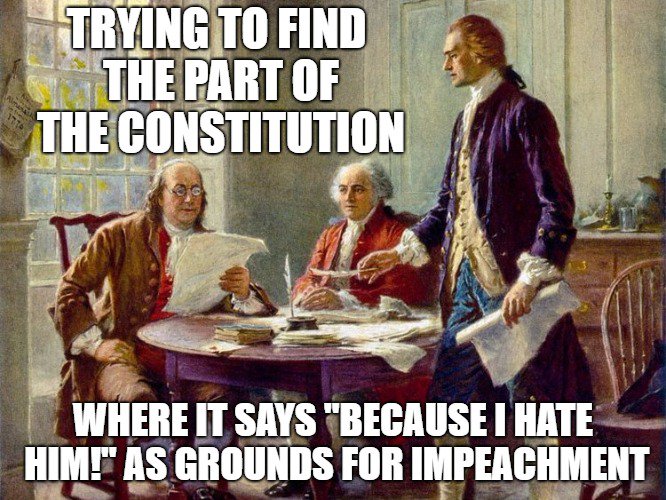An impeachment in the House leads to a trial in the Senate. A president is not removed from office unless the Senate votes to do so.
10 facts to know. nbcnews.to/36oGNiP
The founders intentionally kept the term "high crimes and misdemeanors" vague, because impeachment is meant to be a political act, not a legal one.
More: nbcnews.to/36oGNiP
Constitution imposes no such requirement, and House rules don't either, even though authorizing resolutions were passed in each of 3 previous pres. impeachment efforts.
More: nbcnews.to/36oGNiP
Not necessarily. A fight over this issue is now in federal court, and the House won the first round.
More: nbcnews.to/36oGNiP
There is no requirement for such an accommodation to the president's lawyers. But that's not how it has worked before.
More: nbcnews.to/36oGNiP
The Constitution simply says the Senate has "the sole power to try all impeachments." Senate rules suggest that it's a duty, not an option.
More: nbcnews.to/36oGNiP
The Constitution lays out only three requirements.
More: nbcnews.to/36oGNiP
It's limited. Former Chief Justice William Rehnquist described it this way: "I did nothing in particular, and I did it very well."
More: nbcnews.to/36oGNiP
No. The same constitutional provision that gives the president power "to grant reprieves and pardons for offenses against the United States" adds this phrase: "except in cases of impeachment."
More: nbcnews.to/36oGNiP
He would be immediately removed from office, triggering the 25th Amendment. VP Pence would become president, and Pence would nominate someone to succeed him as VP.
More: nbcnews.to/36oGNiP










